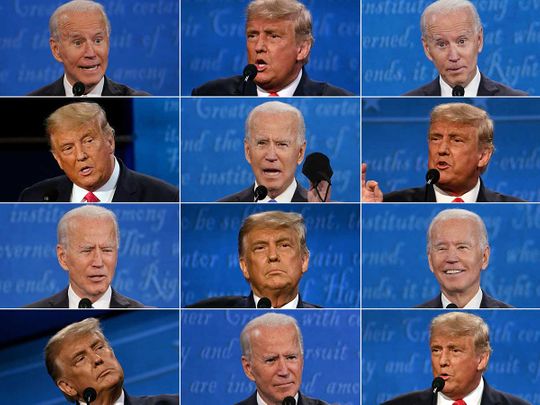
Some 90 million Americans have already cast their votes in the presidential election, promising that the turnout in Tuesday’s vote will likely be the highest since 1908. No one remembers the personalities or policies of that historic campaign – but what of the policies now as President Donald Trump seeks his second term in office against the Democratic candidate and former Vice-President, Joe Biden.
In his reelection bid, President Trump is touting his stewardship of the economy, promising a rapid coronavirus vaccine, and employing tough rhetoric on immigration and social unrest. For his part, Biden says he would reverse many of Trump’s actions and pursue ambitious proposals to address the pandemic, racial injustice and climate change.
Here’s a quick look at what sets the two men apart, what they plan to do for the next four years if elected, and how that will impact the lives of some 328 million Americans and billions more around the world.
PERSONALITY
Donald Trump
Since beginning his outside challenge to become president in 2016, Donald Trump has galvanised a large segment of US society, buying into his simple but highly effective promise: Make America Great Again.
The former reality television star, Manhattan socialite and property tycoon promised to drain the swamp in Washington. His 2016 win was largely unpredicted, gaining support from those who did not entirely trust Hilary Clinton and her record as First Lady, Secretary of State and New York Senator.
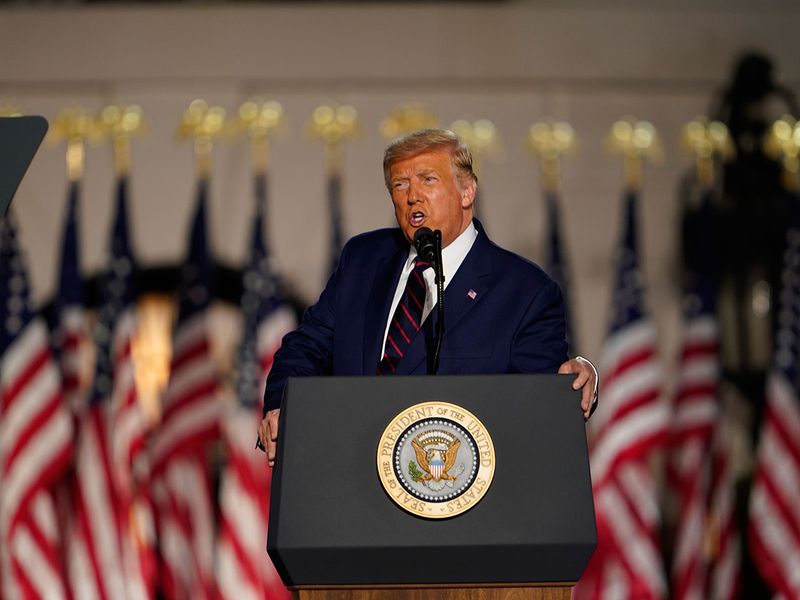
This time around, polls say voters trust President Trump with the economy more so than Biden. He also enjoys the advantage of being the incumbent which gives him the opportunity to use the White House and its symbols of power as a backdrop to his campaign.
President Trump’s political strength lies in his ability to galvanise his fanatical base at large, raucous, free-flowing and unsynced campaign rallies – now hampered by the coronavirus, social distancing requirements and his own untimely infection with coronavirus at a time when he has claimed the virus was under control. Criticism of his handling of the pandemic has been stinging, with President Trump largely failing, polls suggest, to hold on to older and suburban voters.
Joe Biden
The former vice-president and long-time senator from Delaware was a Washington insider at the centre of the Democratic party for decades. Biden’s victory in the Democratic nomination process came from a belief across all sections of the party that he possessed both the experience and personality to defeat President Trump as well as claiming back former Obama voters who either failed to support Hillary Clinton or were wooed by Trump’s promise to Make America Great Again in 2016.
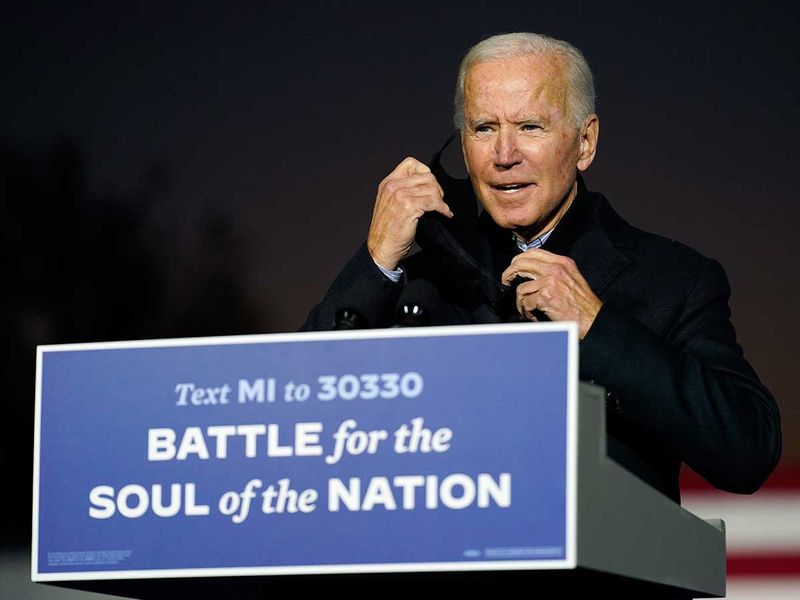
Since last May, Biden has consistently polled ahead of President Trump nationally, and vitally – at a time when some 230,000 Americans have died and some 9 million have been infected with coronavirus – is believed by most voters to be able to act cohesively against the pandemic. And most believe he is the candidate who can unite the country at a time of major divisions.
Biden is 77 while President Trump is 73. Biden’s age has led some voters to worry that he may not be up to the rigours of commander-in-Chief, the Oval Office and overhauling and rebuilding a nation and system of government fractured by Trump’s divisive presidency. Biden has a record too of making gaffes and verbal bloopers – he recently referred to Trump as “George” – and the Trump campaign is raising questions about the onset of dementia.
Biden has selected California Senator Kamala Harris as his running mate – young, black and female. There are those who believe that should Biden win, his will be a one-term presidency, setting the stage for Harris to headline in 2024. But that is four years away. What counts now are the next two days, and how Americans will cast their ballots.
CORONAVIRUS
Donald Trump
In January, as the coronavirus outbreak began, the White House formed a task force that included Dr Anthony Fauci, the director of the National Institute of Allergy and Infectious Diseases, and Dr Deborah Birx, the coordinator of the US Government Activities to Combat HIV/AIDS. A month later on President Trump’s direction, the US began implementing stringent travel restrictions in an effort to contain the outbreak, which included temporarily denying entry to foreign nationals who had visited China in the 14 days prior to their arrival in the US.
Public health officials in Trump’s administration have urged Americans to practice social distancing and wear masks to slow the spread of the virus, but Trump himself has been reluctant to wear a mask in public. The President said that he didn’t believe making masks mandatory across the country was necessary, said in July that he is “all for masks” and that he “thinks masks are good.”
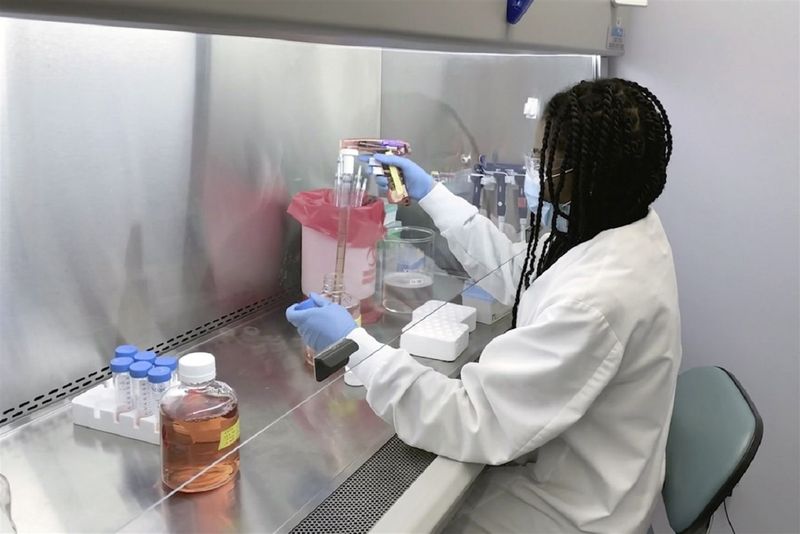
The President has effectively pushed the coronavirus response down to state level, largely removing federal responsibility and chiding governors whose states fail to get a grip on the virus. He has consistently pushed for controversial and improved treatments, and has said that there is a vaccine coming soon. For Trump opponents, his contracting COVID-19 was seeming inevitable; for his supporters, his quick recovery underscores their beliefs that there is little need for restrictions of freedom of movement or other public health measures. His claims that he was downing playing concerns over the virus so as not to scare Americans, has also angered his opponents, with his supporters saying it’s a sign of his compassion for the American people.
Joe Biden
The Democratic candidate’S plans to address the pandemic includes offering free testing to all 328 million Americans. It calls for hiring 100,000 people for national contact-tracing, as well as increasing drive-through testing sites. He is also planning to use the Defence Production Act to ramp up production of protective equipment for health care workers, testing supplies and other items.
Biden’s plan includes steps designed to help businesses and schools reopen, including financial support for retaining and rehiring workers, building a best-practices clearinghouse for schools and guaranteeing paid leave for anyone with coronavirus or who is caring for someone with the virus.
The former vice-president also said he would call Dr Fauci shortly after being declared the winner of the general election to ask him to remain a member of the White House coronavirus task force.
Biden has also said he would mandate that everyone wear a mask in public under federal law.
ECONOMY
Donald Trump
For the first 40 months of his four-year term, the solid growth, low unemployment and rising stock market offered Donald Trump a safe and secure path to re-election. If Americans have jobs, money in their pockets and see their investments and spending power increasing, then all is well. But since the coronavirus hit, all is far from well. In March, the unemployment rate was 4.5 per cent; A month later, 14.5 per cent. In September, it stood at 7.5 per cent.
For many American voters now, the spluttering economy and failed response to coronavirus means they are not backing Biden. Congressional measures and Trump initiatives haven’t worked so far.
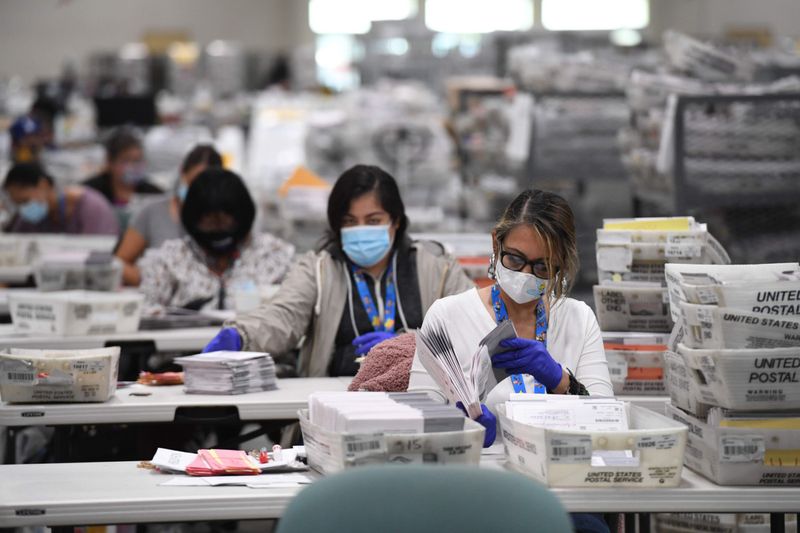
In March he signed a $2 trillion stimulus package that included, among a myriad of other items, direct financial assistance to Americans. It followed a coronavirus relief package that allowed for free testing, paid emergency leave, tax credits and expanded food assistance. For critics, the measures didn’t go far enough or reach the people most in need.
Trump’s major economic policy achievement in office was a 2017 tax cut, which drastically reduced rates for individuals and businesses but added $1 trillion to the US federal deficit.
If re-elected, Trump vows to eliminate the federal deficit by the end of his second term.
Joe Biden
If elected, Biden is promising to boost middle class Americans, building an economy that rewards work, not just wealth. He pledges to repeal the tax cuts enacted by the Trump administration and is pushing for a $15 minimum hourly wage, eliminating non-compete agreements for workers and expanding access to affordable education, including free community college.
Biden’s plan to address the coronavirus pandemic also includes steps designed to help businesses and schools reopen, including financial support for retaining and rehiring workers, building a best-practices clearinghouse for schools and guaranteeing paid leave for anyone with coronavirus or who is caring for someone with the virus.
He also plans to raise the top individual income tax rate to 39.5 per cent and raise the corporate tax rate from 21 to 28 per cent.
He is promising to promote clean energy, rebuild infrastructure and health care. He has also proposed new tax credits for those who care for children, seniors and disabled people.
CLIMATE CHANGE
Donald Trump
President Trump’ s decision within five months of taking office to withdraw the United States from the Paris climate accord – a landmark 2015 deal on global warming targets – was a major blow to the global response to the climate crisis. That notice to leave actually expires next Wednesday, the day after the election. The decision to withdraw sent a message to the rest of the world that the US would not be leading the global fight against climate change, undermining and negating the efforts of the Obama administration to highlight the issue.
Trump’s environmental protection Agency chief has said that while he believes in climate change, it is not a top priority. The administration shrank two of Utah’s national monuments parks, has pushed to open Alaska's Arctic National Wildlife Refuge to oil and gas exploration, as well as allowing petrochemical exploration in waters along the East and Pacific coasts. Under the Trump administration, the EPA announced it would no longer require oil and gas companies to install monitors to detect methane leaks from new wells, tanks and pipelines. President Trump has vowed to continue his support for fracking and coal in his second term.
Joe Biden
Biden wants to make clean energy a centrepiece of his economic revival plans. He proposed spending $2 trillion over four years on clean energy projects and ending carbon emissions from power plants by 2035.

Biden called the threat posed by climate change a “once-in-a-lifetime opportunity to jolt new life into our economy”. The plan marks a clear shift by Biden toward progressives’ goals of urgently reducing fossil fuel consumption to combat climate change.
Biden’s new proposal is more ambitious than the 10-year, $1.7 trillion plan he’d offered during the Democratic primary, which included the goal of achieving net-zero emissions by 2050. His proposed 100 per cent clean electricity standard by 2035 is modelled after a series of recommendations negotiated by a task force made up of members appointed by Biden and Vermont Senator Bernie Sanders and co-chaired by New York Rep. Alexandria Ocasio-Cortez, a chief proponent of the Green New Deal.
FOREIGN RELATIONS
Donald Trump
For traditional US allies in Europe, President Trump’s very public calling out of North Atlantic Treaty Organisation members that failed to live up to their defence-spending commitments was a clear sign that America First meant a redrawing of traditional alliances.
Trump has made no secret for his admiration of strongmen leaders and has pressed reset on relations with North Korea over two summits. Whether those have done enough to contain the nuclear ambitions of the Pyongyang regime remains to be seen.
Trump made clear too in withdrawing the US from the joint treaty on Iran’s nuclear programme that he believes the regime in Tehran remains an existential threat to the immediate Gulf region and beyond.
He has made strides in withdrawing US troops from Afghanistan and brokered agreements between Israel and the UAE, Bahrain and now Sudan to normalise relations. His Middle East initiative on resolving the Palestinian issue has largely flatlined.
Joe Biden
A central argument of Biden’s campaign for president is that the former Vice-President has extensive foreign policy experience from his eight years serving in the White House and from travelling the globe as chairman of the Senate Foreign Relations Committee.
A Biden presidency would restore pre-Trump international norms and “place America back at the head of the table.”
The centerpiece of Biden’s effort to return to international cooperation is a summit that Biden said he would call among the world’s democracies, non-governmental organisations and corporations – particularly tech and social media companies – to seek a common agenda to protect their shared values. Such a summit would push companies like Facebook, Google and Twitter, where Russian trolls reached American voters during the 2016 election, to combat challenges such as surveillance, censorship and the spread of hate speech.
While in the Senate, Biden voted to authorise the war in Iraq in 2002. Like other Democrats who voted yes, Biden has spent the years since apologising for it as the conflict became increasingly unpopular with the American public and Democratic voters.
TRADE
Donald Trump
During his first term, President Trump made a series of unpredictable moves on trade, including the imposition of tariffs against allies like the European Union. Trump has also engaged in a two-year trade war with China, imposing an escalating series of retaliatory tariffs that have hit American farmers, importers and manufacturers.
He announced plans to withdraw from the Trans-Pacific Partnership Negotiations and Agreement, an Obama-era trade deal among a number of countries, soon after taking office in 2017. Preferring bilateral deals, he signed a new trade pact with Japan in 2019, but it was no better for American ranchers and farmers than the Trans-Pacific Partnership would have been. His administration also renegotiated the North American Free Trade Agreement, the trade pact with Canada and Mexico. The countries have since agreed to the United States-Mexico-Canada Agreement, but it is pending ratification by the US Congress.
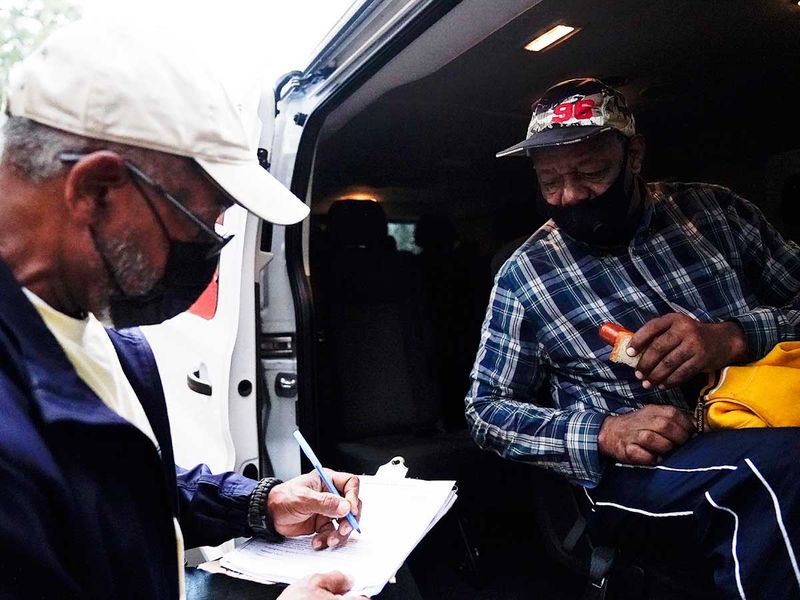
Joe Biden
Biden has said that he would reconsider one of the first moves Trump made on taking office: withdrawing the US from the Trans-Pacific Partnership, a massive trade deal involving companies all around the Pacific Rim.
A Biden presidency would also reevaluate Trump’s tariffs, suggesting he would roll back at least some of them. It would also reset relations with the European Union. He would also restore US membership in the world Health Organisation.
NATIONAL SECURITY
Donald Trump
Trump’s approach to national security has focused on isolationism – America first – and strengthening the US military through increased defense spending while attempting to reduce the number of forces posted overseas, both in high-conflict areas like Afghanistan and Iraq, and on the soil of US allies like South Korea and Germany.
Joe Biden
Biden, while a strong supporter of the military and an advocate for the judicious deployment of US forces abroad, is more of an internationalist than Trump. The one-time chairman of the Senate Foreign Relations Committee has strong relationships with many of the leaders of America’s traditional allies and would be expected to begin rebuilding those ties if elected.
HEALTHCARE
Donald Trump
One of his core aims in his first term in office was to dismantle the Affordable Care Act –Trump and Republicans derogatively refer to it as “Obamacare” – yet the act remains in place largely due to the efforts of the late Arizona Senator and former Republican presidential candidate John McCain.
President Trump has repeatedly said that a new health care bill is forthcoming yet has not revealed any details. He has, however, signed executive orders to protect Americans’ pre-existing conditions and suppress surprise billing that might arise from treatments for coronavirus.
With reform failing on the Senate floor, President Trump is now actively encouraging the US Supreme court – he has now placed four of the nine justices and secured a comfortable 6-3 conservative majority for the foreseeable future – to repudiate the provisions of the act.
President Trump has promised to reduce drug prices and is pushing to allow drug importation, particularly from Canada, and to tie the price of drugs in the US to their cost in other developed nations.
Joe Biden
As Obama’s vice-president, Biden was an enthusiastic supporter of the Affordable Care Act. Now, he wants to greatly expand its provisions to make costly private insurance policies more affordable. The provision falls short of the free health care plan touted by former Democratic contender and Vermont Senator Bernie Sanders, but is radical enough to secure support from a broad swath of the Democratic voter base.
The plan would also create a new “public option” similar to Medicare that people could buy into. If elected, Biden says the health care plan will be one of his priorities, allowing Americans to choose between staying in the Medicare system, having their own private insurance, or choosing to buy a third option, one that combines cheaper private insurance.
RACE RELATIONS AND POLICING
Donald Trump
Over the past year, while protests over the deaths of multiple unarmed African Americans involving police have roiled cities across the country, President Trump has made it clear that he stands squarely on the side of the law enforcement community. He has advocated for get-tough policies with demonstrators, especially those using violent tactics, and has been equivocal, at best, when it comes to denouncing white supremacist groups that have mounted counterprotests.

He has repeatedly said that he is “the least racist” President and likens himself to President Abraham Lincoln on the issue. He has also authorised federal agents from Homeland Security and the Alcohol, Tobacco and Firearms department to police protests in Portland, Oregon and other cities in defiance of state governors.
He is campaigning on being a law and order president.
Joe Biden
Biden has tried to walk a fine line between calling for order and condemning violence on all sides, and a growing movement within his party to radically reform law enforcement practices.
He does not support calls to “defund police” that have picked up since the police killings of George Floyd in Minnesota and Breonna Taylor in Kentucky. He does, however, supports the need for reform by including funding for public schools, summer programmes, and mental health and substance abuse treatment.
He also wants more funding for police reforms such as body cameras and training on community policing approaches. Biden has called for an additional $300 million to allow more officers to be hired and would pay for training on community policing approaches.
IMMIGRATION
Donald Trump
During his 2016 campaign, Trump proposed the construction of a wall along the US-Mexico border, and has made it a tenet of his immigration policy as President. After taking office, he issued an executive order suspending the entry of people from a number of Muslim-majority countries for 90 days; the order went through several iterations in court before it was upheld.
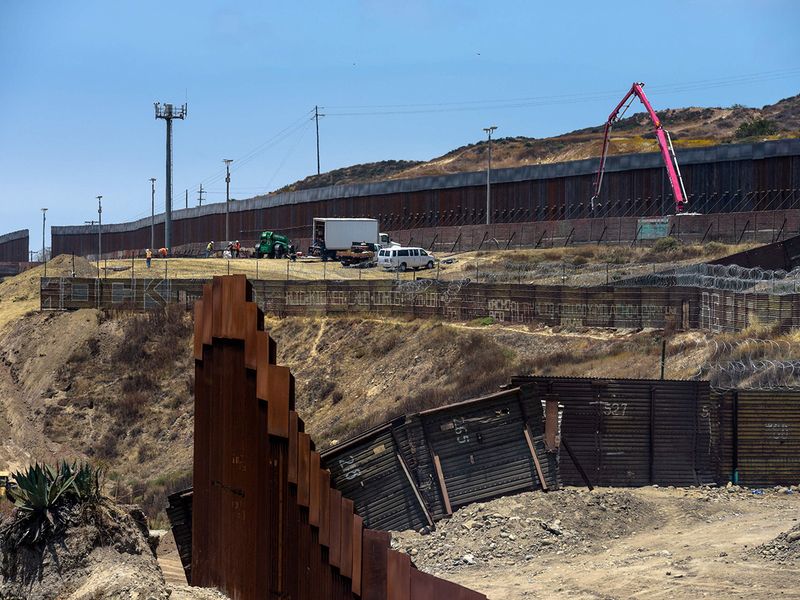
The administration’s “zero tolerance” policy in 2018 – criminal prosecutions of adults who illegally crossed the border – resulted in thousands of family separations at the border as parents were detained. Under a court order, the government must identify and reunify certain separated children.
The President has proposed a merit-based immigration system, establishing a points-based system for green card holders and restricting sponsorship to spouses and minor children. Trump also officially ended Obama-era protections for undocumented immigrants – the so-called “Dreamers”
Joe Biden
Biden supports a pathway to citizenship for undocumented immigrants. He has also called on Congress to immediately grant citizenship to some undocumented immigrants – “dreamers”– brought to the US as children.
At the first Democratic presidential debate in June, Biden said that undocumented immigrants with no criminal records “should not be the focus of deportation.”
Biden said he opposes decriminalising cross the border without documentation - something other candidates in the field have supported.
GUN VIOLENCE
Donald Trump
In the wake of mass shootings throughout his presidency, Trump has vowed action on gun violence, including expanding background checks. But he has been vague on the details, and has repeatedly pointed to mental health and hate as the underlying issues.
After the 2017 Las Vegas shooting, Trump ordered the Department of Justice to ban bump stocks, attachments that effectively make semi-automatic rifles fire continuously. The ban became effective in March 2019.
The President has backed “red flag” gun laws on the state level, which enable those who have seen warning signs to seek court orders to intervene and prevent someone who is in crisis from temporarily having access to firearms.
Joe Biden
Biden has said he will push to ban so-called assault weapons if elected. As a senator Biden helped lead the effort to ban assault weapons in the 1990s and believes the US has a “huge problem with guns” and that assault weapons, which he defined as “military-style firearms designed to fire rapidly,” are a threat to US national security.
He said he will push for a federal gun buyback programme in an attempt to take more weapons off the streets. He supports universal background checks, and said assault weapons should be illegal.
Biden also wants manufacturers to include biometric measures that would block firearms from being used by those whose fingerprints aren’t registered for that specific gun.
EDUCATION
Donald Trump
Trump, as President, has vowed to fix student loan debt. As directed by an executive order, the Department of Education published new data in November 2019 about graduates' income and debt levels aimed at helping students make more informed borrowing decisions before choosing colleges. The White House has also made loan forgiveness automatic for veterans with disabilities and urged Congress to include a cap on student loan borrowing.

It has rescinded a number of Obama-era policies, including those that promoted racial diversity in schools and protections for transgender students in public schools that let them use bathrooms and other facilities corresponding to their gender identities.
It has also rolled back two rules that were intended to hold for-profit colleges accountable.
Joe Biden
Biden has proposed an education plan that would increase funding for schools in low-income areas, help teachers pay off student loans and double the number of health professionals working in schools.
He would also guarantee that those earning less than $25,000 owe nothing on their undergraduate federal student loans, while everyone else's payments would be capped at 5 per cent of their discretionary income above $25,000 – halving the current 10 per cent cap.
FEDERAL COURTS
Donald Trump
With the help of the Republican-controlled US Senate, President Trump has been able to name hundreds of conservative judges to lifetime appointments on federal courts at all levels. And with the confirmation of Amy Coney Barrett to the Supreme Court last Monday evening, his third appointment to the nine-member panel, Trump appears to have cemented a 6-3 conservative majority on that body for the foreseeable future.
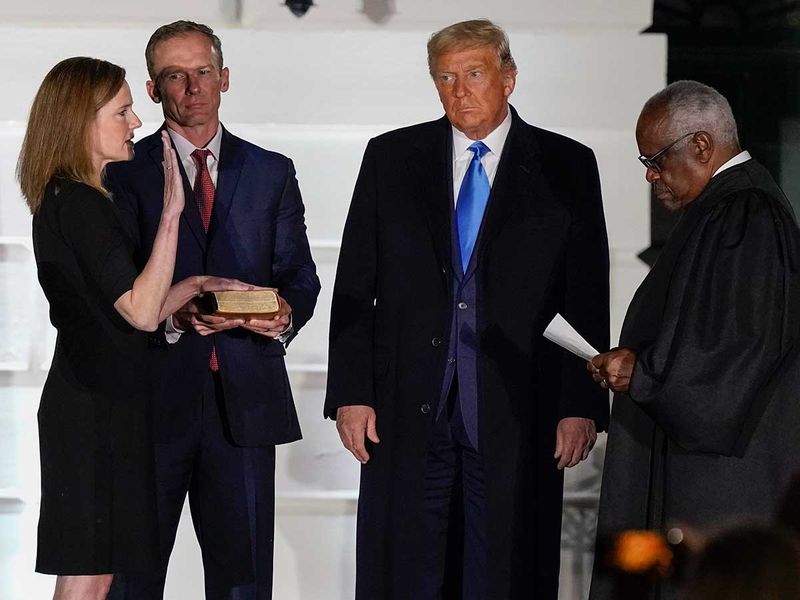
Joe Biden
Many Democrats believe that Senate Republicans have unfairly stacked the courts with conservatives, first by blocking lower court nominees made by Trump’s predecessor, Barack Obama, and then refusing to vote on Obama’s appointment to a vacant Supreme Court seat in the 2016 election year.
The determination of Senate Majority Leader Mitch McConnell and Trump to have Barrett confirmed just eight days before the November 3 presidential election has convinced many that a Biden administration ought to “pack” the Supreme Court by adding more justices to the nine currently serving.
Biden has not explicitly supported the expansion of the high court but has said that he would create a commission to study the idea.
- With inputs from agencies








